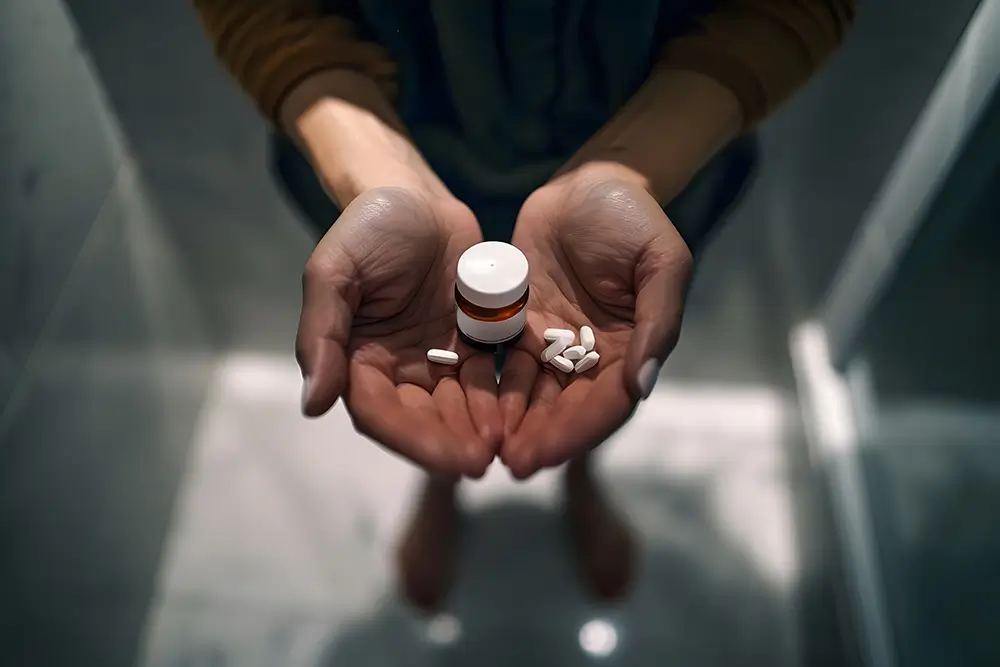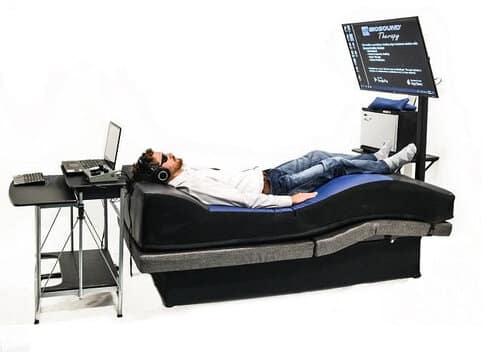Get the best Adderall Addiction Treatment in New Jersey
Let our compassionate team guide you at every step toward recovery
Request a Callback
Adderall Addiction Rehab: Overview
Adderall, a medication commonly used to treat ADHD(Attention Deficit Hyperactivity Disorder), has become a popular drug among young adults. While it is prescribed by medical professionals to treat ADHD, many misuse this powerful stimulant without a prescription. This misuse not only increases the risk of addiction but also poses serious health concerns. In 2022, over 10.2 million people aged 12 and older misused stimulants. This highlights the growing problem around the misuse of these substances.
While Adderall can be beneficial when used correctly, unprescribed use can lead to dependency and harmful side effects. Addiction to prescription stimulants is serious, but like every addiction, it can be treated. If you or someone you know is struggling with Adderall misuse, there are effective Adderall addiction treatment options designed to help you recover and regain control of your life.
You don’t have to face this alone. Start your journey to recovery today with the best Adderall addiction rehab in New Jersey.


The Risk & Symptoms of Adderall Addiction
The repeated dose and abusive consumption of Adderall without a prescription can change the brain’s chemistry. Over time, our brain becomes accustomed to the drug, which leads to high tolerance. This means individuals crave for higher and more frequent doses to achieve the same effects. This is how a dangerous cycle of misuse begins.
SUD can occur when the continued use of the drug starts causing significant issues, such as health problems or failure to meet daily responsibilities at work, school, or home.
The American Psychiatric Association outlines several signs that indicate stimulant use disorder, including:
- Using Adderall in larger doses or for longer periods than intended.
- Failing to reduce or stop usage despite repeated attempts.
- Spending excessive time obtaining, using, or recovering from the drug’s effects.
- Experiencing intense cravings or urges to use the drug.
- Struggling to fulfill work, school, or home responsibilities due to continued use.
- Continued use despite negative impacts on relationships or social life.
- Reducing or abandoning activities due to drug use.
- Using the drug in dangerous situations, risking physical harm.
- Persistent use even when aware of physical or mental health issues caused or worsened by the drug.
- Developing tolerance requires higher doses to achieve the desired effect.
- Experiencing withdrawal symptoms when not taking the drug.
These signs of Adderall addiction are serious. If you or someone you know is facing this situation, getting help is important. Adderall addiction rehab can guide you to recovery and a healthier life.
We believe in Holistic Therapies.

Biosound Therapy
Biosound Therapy is the integration of Biofeedback, Therapeutic Music, sound healing massage, and guided imagery. The guided imagery selections on the Biofeedback Bed are designed to address the guilt, fear, shame and trauma associated as underlying issues for most dealing with addiction. These moving meditations begin with a journey to a completely relaxed state of mind. Then, utilizing a unique echo effect, powerful and positive affirmations are delivered. This combination helps the client overcome those deep rooted, negative patterns of thought and behavior.
- Relieves pain & stress
- Assists with Detoxification Treatment
- Lowers cravings, impulse behavior and racing thoughts
- Lowers anxiety & depression

Equine Psychotherapy
Equine-Assisted Therapy is used to treat patients challenged with everything from drug and alcohol abuse dependency and post-traumatic stress syndrome. The therapy takes advantage of the mental and physical exercise that working with a horse can provide. Equine therapy:
- Helps clients learn to identify and cope with feelings
- Promotes Effective Communication Skills
- Helps Addicts Better Manage Behavior
- Teaches How to Set Boundaries
- Restores Self-Esteem and Self-Worth
*This is an optional, additional therapeutic therapy available after clinical treatment hours.

Massage Therapy
Clients at Relevance receive weekly massage therapy from our Licensed Therapists. Some additional benefits include:
- Release of ‘feel-good’ hormones. According to the American Massage Therapy Association (AMTA), massage helps to increase serotonin and dopamine (feel-good hormones) and decrease cortisol which is related to stress.
- Reduce agitation and anxiety and ease sleep problems.
- Provides a natural, alternative method of healing, free of drugs.
- Helps with the removal of metabolic waste. Therapeutic massage triggers or stimulates the body’s parasympathetic nervous system. This in turn can increase circulation and promote the effectiveness of the lymph system. The lymph system helps to alleviate pain symptoms and is responsible for removing the body’s metabolic waste build-up.
- Provides the client with a connection to their body, and improves or increases body awareness.
The Impact of Adderall Misuse on Health
When used as prescribed for ADHD, Adderall effectively manages symptoms without leading to addiction or stimulant use disorder. Research supports that long-term, appropriate use does not increase the risk of substance misuse.
However, misusing Adderall for reasons like boosting focus or academic performance can lead to serious consequences. Using Adderall to increase focus or study can be risky. It might help at first, but it can lead to addiction and harm your health over time.
Physical Health Effects: Adderall abuse can strain the cardiovascular system, causing increased heart rate, high blood pressure, and even cardiac arrest. It can also lead to unhealthy weight loss, sleep disturbances, and gastrointestinal issues.
Mental Health Effects: Misuse can lead to anxiety, paranoia, and mood swings, which can deteriorate overall mental well-being.
Using Adderall responsibly is crucial, as misuse not only risks addiction but can harm overall health in significant ways.

Treatment Options For Recovery In New Jersey
Adderall addiction can feel like a heavy burden, but the right support is closer than you think. Recovery is possible with the right care and guidance. At Relevance Recovery, we’ve helped many individuals overcome addiction through personalized treatment plans designed to meet their unique needs. Here’s how the right Adderall addiction treatment can support your journey to recovery:

Inpatient Rehab
Inpatient rehab offers a safe, structured space for severe Adderall addiction recovery. With detox, therapy, and medical care, it helps individuals build long-term coping skills. Programs usually last 30 days to a few months.

Outpatient Rehab
Outpatient rehab lets individuals get treatment while continuing daily life. Therapy and support groups are scheduled, making it a flexible option for mild to moderate addiction.

Cognitive-Behavioral Therapy
CBT helps individuals understand and change thought patterns linked to addiction. It provides tools to handle triggers and build healthier habits through focused therapy sessions.

Support Groups and Counseling
Support groups like NA connect individuals with peers for encouragement and accountability. Counseling offers a private space to explore challenges and gain guidance for recovery.

Holistic Approaches
Holistic methods like yoga, meditation, and exercise are important parts of recovery. We believe in your strength to heal and rebuild your life. Good nutrition also helps by reducing stress and supporting your recovery naturally. Hence, holistic approaches are one such way to overcome the Adderall dependency.
These Adderall addiction treatments, offered at Relevance Recovery, have shown positive results, helping individuals overcome addiction and live normally. Now it’s your time to make the move.
We Work With Most Major Insurance Providers
- Aetna
- Amerihealth
- Anthem
- Beacon
- Behavioral Health Systems
- BCBS—Most BlueCross & BlueShield Plans
- Carelon Behavioral Health
- CareFirst
- Cigna
- ComPsych
- Coventry
- Empire BlueCross BlueShield
- GHI
- Highmark
- Humana
- Magellan
- MagnaCare
- Meritain Health
- MultPlan
- NYSHIP (New York State Insurance Plan)
- Optum
- Oxford
- PHCS
- Self-Pay
- TRICARE
- UHC
- UMR
- VA Insurance
- 90 Degree Benefits
- Aetna
- Amerihealth
- Anthem
- Beacon
- Behavioral Health Systems
- BCBS—Most BlueCross & BlueShield Plans
- Carelon Behavioral Health
- CareFirst
- Cigna
- ComPsych
- Coventry
- Empire BlueCross BlueShield
- GHI
- Highmark
- Humana
- Magellan
- MagnaCare
- Meritain Health
- MultPlan
- NYSHIP (New York State Insurance Plan)
- Optum
- Oxford
- PHCS
- Self-Pay
- TRICARE
- UHC
- UMR
- VA Insurance
- 90 Degree Benefits
At this time, we do not accept Medicaid or Medicare.
Relevance saved my life. Everyone here is so helpful and genuine. I highly highly recommend!
This program was absolutely life changing. It fully brought me out of a dark tunnel and into a fresh perspective of enlightenment.
Coming from another treatment center from southern Jersey, I was really anxious and afraid, being completely out of my element, it felt like I was a fish out of water. Relevance’s team really made me feel comfortable while I was being treated, and I thank them for that. I felt really supported and cared for during the time I attended program!
Grateful for Relevance and their open door to seek the treatment I needed.
Great place! All the people are friendly and the staff helped me greatly in my recovery.
This place is a wonderful place to better yourself if you’re looking for a place that still feels like reality. You are not isolated from the rest of the world, but working on yourself within it. Most of the employees here really make an effort to help you, and the atmosphere is wonderful! I’m so greatful for this place
Relevance was such a welcoming environment every day. Staff was amazing supportive and caring. Definitely helped me prepare for life after treatment.
Make the Move Towards Healing: Relevance Recovery New Jersey
Overcoming Adderall dependency is tough, but with the right support, it’s completely possible. We understand that addiction affects everyone differently, which is why we offer personalized treatment plans designed just for you. We take the time to get to know your unique needs, goals, and challenges so that we can help you create a plan that works for your life.
We go beyond helping you through the first steps. We focus on long-term recovery and relapse prevention via a range of treatments, including therapies, medications, support groups, and holistic methods. These help build a strong foundation for lasting results. With award-winning treatment plans and a highly qualified team, we ensure your issues are addressed with the care and expertise they need.
Now is the time to take that first step. Your personalized Adderall addiction treatment plan is ready. Let’s work together and begin your journey to a healthier, brighter future today.
FAQs: Adderall Addiction Rehab
To safely withdraw from Adderall, it’s important to work with a healthcare professional. They can guide you through a gradual tapering process to avoid withdrawal symptoms.
While Adderall can suppress appetite, using it to lose weight is dangerous and can lead to addiction and other health problems.
Adderall can change brain chemistry temporarily, especially with misuse. However, if used as prescribed, it doesn’t cause permanent changes.
Taking a break from Adderall should be done under a doctor’s supervision to avoid withdrawal and ensure it’s done safely.
The best treatment options include inpatient or outpatient rehab, therapy (such as CBT), support groups, and holistic treatments, all of which are tailored to the individual’s needs.



